Geography
Intent
At St Breward School, our geography curriculum is designed to inspire in our children a lifelong curiosity and fascination about the world and its people. Rooted in a vocabulary-rich framework, our program seeks to equip children with a robust understanding of diverse places, people, resources, and natural and human environments. Through practical fieldwork opportunities and an emphasis on experiential learning, we aim to develop our children's geographical knowledge, skills, and vocabulary, fostering critical thinking and a deep appreciation for the complexities of the world around them.
In studying geography as a discipline, pupils will:
• engage in geographical reasoning about change (including past, present and future change), diversity across space, and interaction between places, phenomena and processes in the world;
• collect, analyse, record and interpret geographical data, gaining skills of geographical enquiry, including fieldwork;
• interpret a range of sources of geographical information, including maps, diagrams, globes, aerial photographs and digital technologies;
• communicate geographical information in a variety of ways, including through maps, numerical and quantitative skills and writing at length
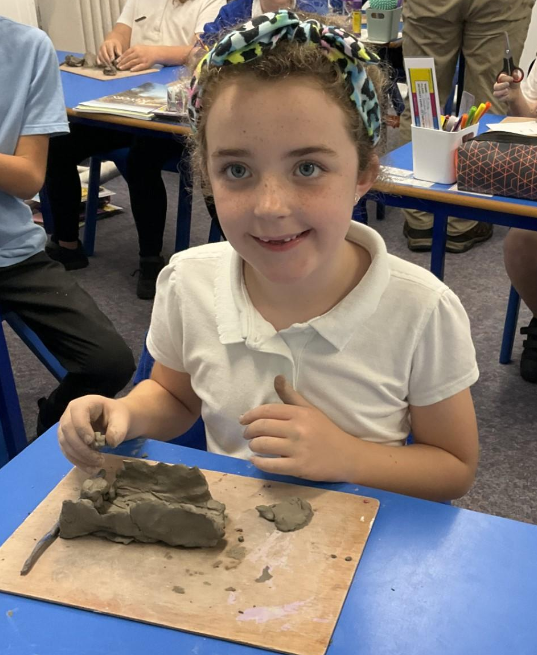
Creating a v-shaped valley from clay.
Implementation
Children begin exploring geography in EYFS through continuous provision linked to the class unit of work. They then build on their skills throughout Key Stage 1, exploring a range of relevant and interesting aspects of geography from their local area to the wider world.
In Key Stage 2, we chose the Opening Worlds Curriculum for its depth of knowledge, extensive vocabulary and engaging resources. The scheme is created to ensure the curriculum is highly coherent, with intricate links built within and across subjects so that nothing sits in isolation but rather is supported and enriched both horizontally and vertically. It is also very carefully sequenced so that pupils’ ability to understand new content, arrive with curiosity about a difficult new topic, instantly recognise a wide range of technical vocabulary, build a comparison and reach a critical judgement is systematically planned.
-
Opening Worlds Geography Fieldwork Guide
download_for_offline
download_for_offlineOpening Worlds Geography Fieldwork Guide
- St Breward Geography Curriculum download_for_offline
download_for_offlineSt Breward Geography Curriculum
Fieldwork
Fieldwork skills are a cornerstone of geography education, playing a vital role in helping students connect theoretical knowledge with real-world experiences. Through fieldwork, children engage directly with the environment, enhancing their understanding of geographical concepts and processes in a tangible and meaningful way. This hands-on approach fosters critical thinking, problem-solving, and analytical skills as students observe, collect, and analyze data from their surroundings. Moreover, fieldwork cultivates a sense of curiosity and exploration, encouraging children to investigate and inquire about the world around them.
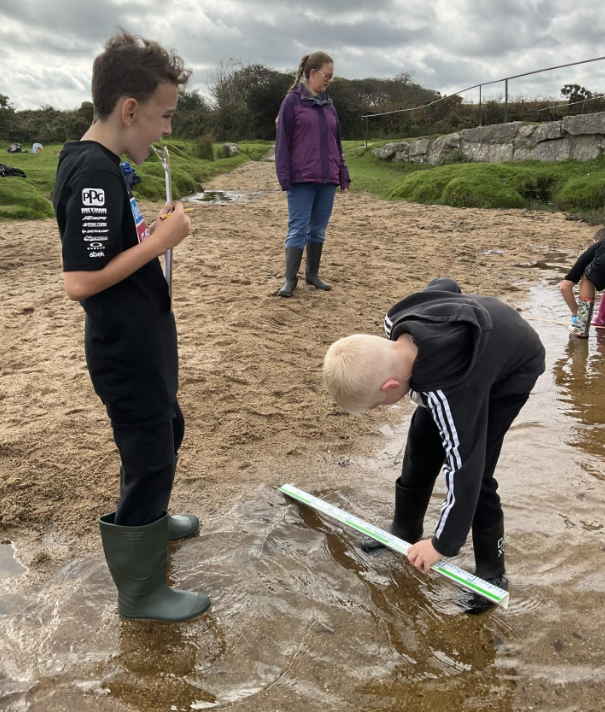
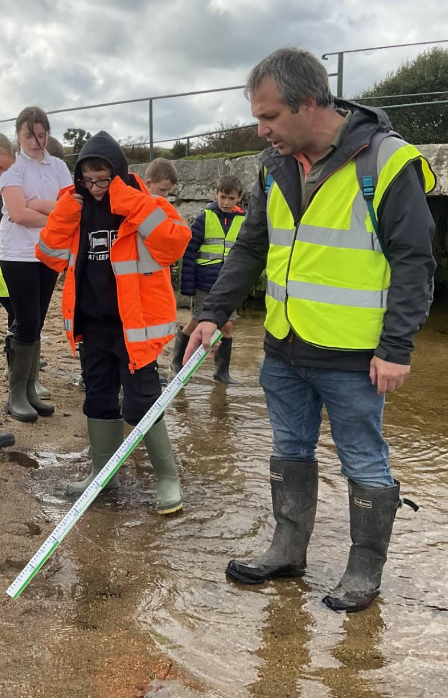
Collecting data from rivers on Bodmin Moor.
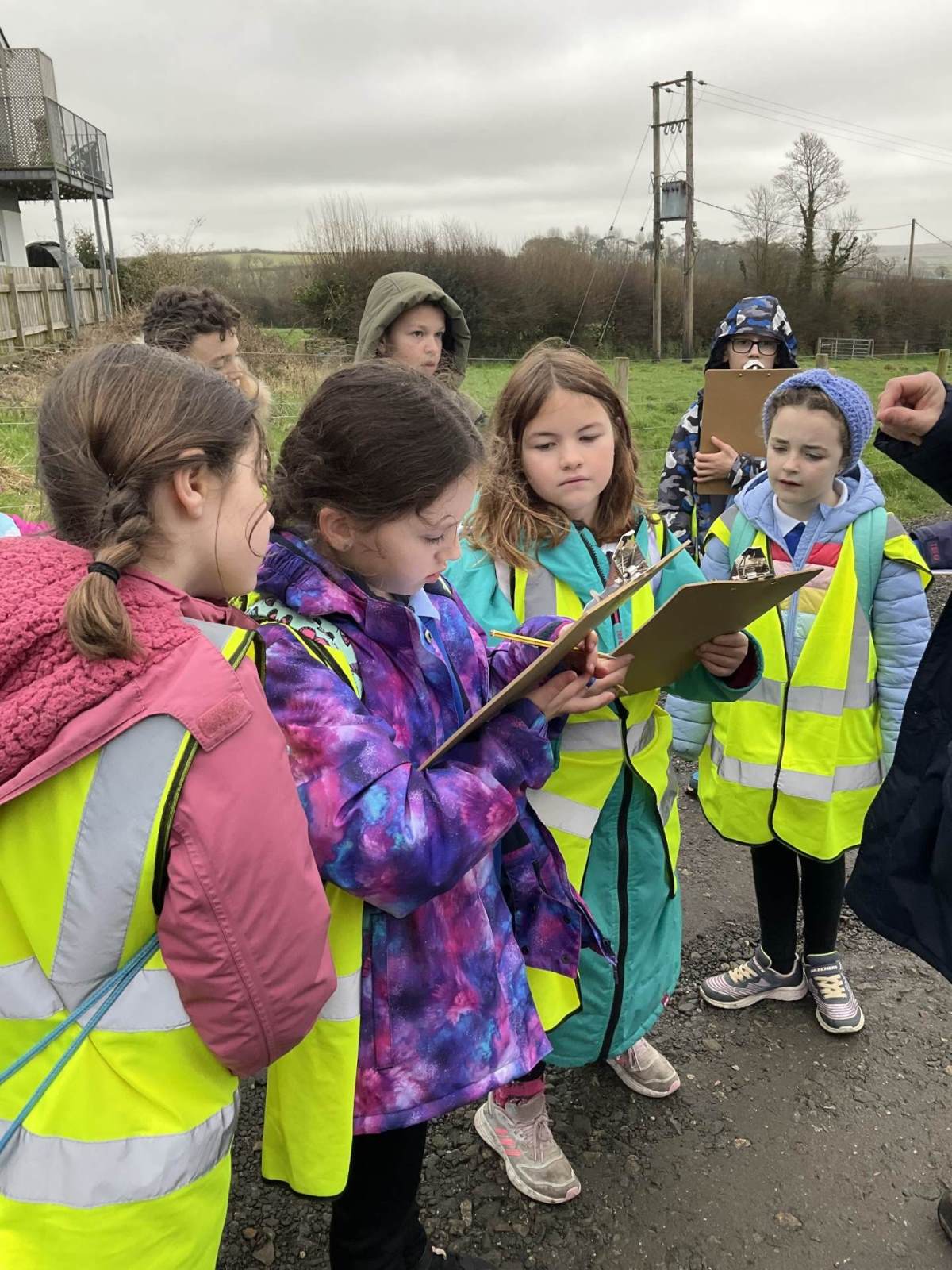
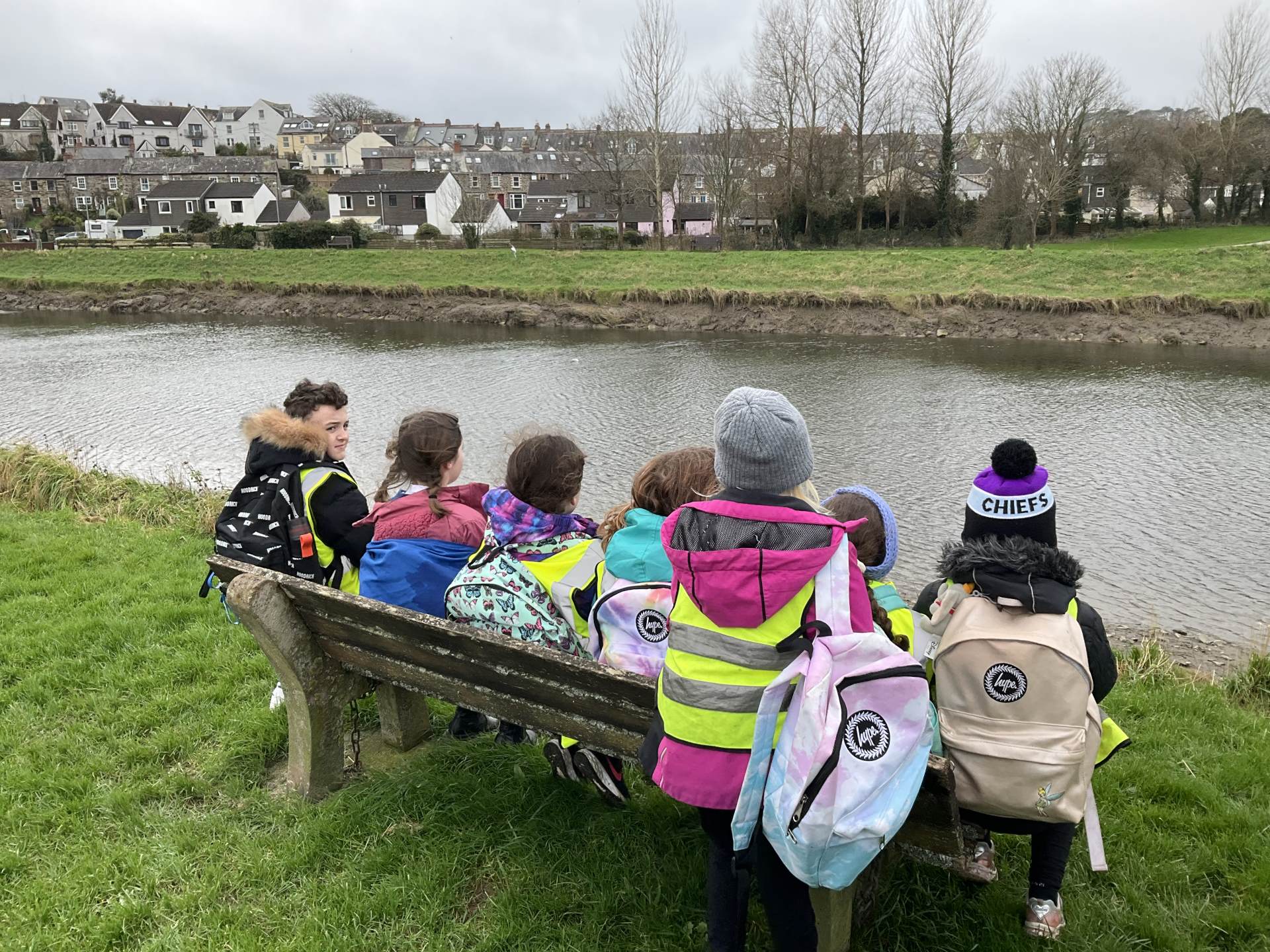
Studying settlements in Wadebridge and the surrounding villages.
Impact
The high quality of the geography teaching ensures children develop the skills and vocabulary they need to have a secure understanding of the primary geography curriculum. Children are able to speak confidently about units covered during pupil conferencing and are enthusiastic about the information they have learnt.
Teachers assess continuously and in Key Stage 2 children complete summative assessments at the end of each unit . These provide an opportunity for children to talk and write about all they have learnt.
- St Breward Geography Curriculum download_for_offline

